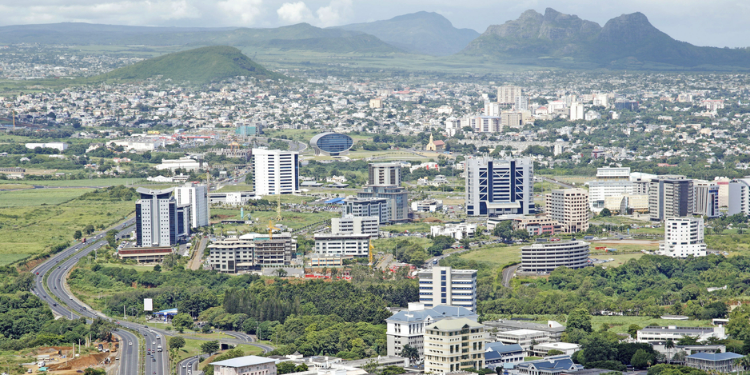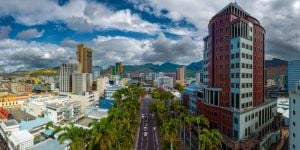
A clear focus of the Mauritian government's post-COVID strategy is to maintain a business-friendly environment and boost foreign investment. With this in mind, new measures have been announced by Finance Minister Renganaden Padayachy in the 2022-23 Budget. What are they? And in this post-COVID era, is Mauritius still a competitive destination?
Mauritius is and aims to remain a business-friendly country. The country has consistently been in the Top 20 of the Ease of Doing Business report. It was 20th in 2018 and 13th in 2020. It is also one of the best countries in Africa for doing business.
With the aim of making business even easier, it will no longer be necessary to pay a single cent to register a company in the country. Currently, the administrative fee is Rs 2,000. The Bank of Mauritius will also ensure that a bank account can be opened within a week, whether it is for a personal account or for a business. These measures were announced last week and are part of a greater effort to facilitate the opening of a business.
It should be noted that Mauritius has already put in place online registering services which allowed a business to be registered in under two hours. The online platform has also recently been made more user-friendly. A considerable advantage for investors and entrepreneurs whether they are foreigners or living in Mauritius.
If the COVID-19 pandemic has had a heavy impact on foreign investments with borders closing, it should be noted that the aftermath in some sectors, such as information technology and communication, has been very bright. In addition to government incentives for investment (special economic zones, tax incentives, payment facilities, etc.), the country offers investors a stable economic and political environment, a solid judicial system, modern infrastructure, a stable financial system, and a highly skilled and dynamic workforce.
Real estate is a real vector for foreign investment
With these new measures in place, the government expects foreign investment to exceed Rs 20 billion compared to Rs 15.4 billion in the previous fiscal year.
Luxury real estate remains the main source of foreign investment. In 2021, the country will record an inflow of Rs 8,373 million of which Rs 5,919 million has been obtained under the Integrated Resort Scheme, the Real Estate Scheme, the Invest Hotel Scheme, the Property Development Scheme and the Smart City Scheme.
The finance and insurance sector generated investments of Rs 1,815 million, while the accommodation and catering business brought in Rs 958 million.
Europe is the biggest market for Mauritius with a total of Rs 5.941 million in investments in 2021, accounting for 39% of the country's Rs 15.4 billion inflow.
The government's measures to simplify applications in the construction sector were one of the points highlighted by the 'Ease of doing business' report in 2020, with Mauritius ranking 8th in this sector out of 190 countries. Thus, the 2019 measures have allowed for a relaxation in this sector allowing more companies to engage in the construction of IRS villas.
Buying a residential property
To ride on this wave of real estate growth, the government has revised the criteria for acquiring property on the island. Nationals with a resident permit will be able to apply for a residential property with a minimum value of US$350,000 (about Rs 15,540,000). A committee chaired by the Prime Minister will verify the various applications.
Also, a residential property acquired by more than one non-citizen under the condominium system will allow them to apply for resident status, provided that the investment of each non-citizen exceeds US$375,000 (approximately Rs 16,462,500).
Retirees welcome
Attracting foreign retirees to settle in the country is part of the strategy to keep the luxury real estate sector growing. The retiree market is an area of future growth according to several global economies. Business France predicts that the number of retirees will reach 1.54 billion by 2050.
Thus, retired expats represent a potentially important market of the future. At the global level, this market is currently worth 15,000 billion dollars. Mauritius has every interest in defining an appropriate strategy to develop this sector. Thus, the Economic Development Board will be responsible for organizing an "International Silver Economy Festival".
A retired non-citizen who has held a residence permit for three years and has transferred a total of at least US$54,000 to his or her account in a local bank during the three years is eligible for a permanent residence permit in Mauritius.
Promoting young foreign talent
Another new measure: encouraging the recruitment of young skilled professionals from abroad. Companies will be encouraged to recruit young talent under the Young Professional Occupation Permit (YPOP).
All foreign students who have obtained at least an undergraduate degree from an institution of higher learning in Mauritius are eligible to apply for a Young Professional Permit. The application for the YPOP must be submitted by the Employer to the Occupational Permits Unit (OPU) by email at op@edbmauritius.org.
The permit is valid for a period of three years. The company's business activity must fall within the following areas: artificial intelligence, biotechnology, Fin-Tech, robotics, financial services, information technology. These new sectors are gaining momentum worldwide. And it is imperative for Mauritius to follow this trend.
Opening up to the world at this level and providing the right skills will allow new investors to be more interested in the advantages that the country can offer.
In one of the previous budgets, making Mauritius a Fintech hub in the region was one of the measures announced and the legislative and regulatory framework is slowly being built in place to support this ambition.
Also, foreign entrepreneurs and students who complete their tertiary studies will be able to benefit from the "Premium visa", although the parameters of this measure have not yet been made public. Another announcement: a 20-hour work permit will be granted to foreign students enrolled in a known institution in Mauritius.



















